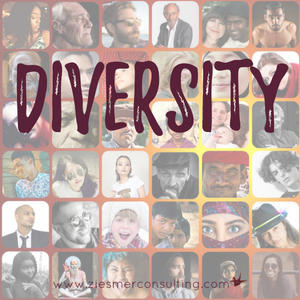Diversity means different things to different people. Typically, when you hear the word diversity most people automatically think of demographics. By this I mean race, gender, sexual orientation etc. But there are different types of diversity as well that need to be considered. Specifically in the workplace.
There is diversity in interests. The books we like to read or the vacations we enjoy. Maybe, you really like gardening or are an avid model airplane builder. Maybe, you enjoy attending concerts and the theater. Or, maybe you like the latest blockbuster movies and video games. All of these interests reflect a form of diversity.
Another form of diversity is cognitive differences. This is how you solve problems. How you think about things. Therefore, organizations like to create teams of people who have a diversity of thought. This makes for a well rounded approach. It gives an organization a variety of avenues and perspectives to problem solving.
If you would like to read more on this topic I found this list of articles to be very informative with a variety of perspectives.
Demographic Diversity
Demographic diversity is the most obvious form of distinction. It is most often the characteristics that identified you at birth. These are things that you typically carry around with you for the rest of your life. Your gender, your hair color and texture, eye color and skin color or tone are all characteristics that make up who you are. Because of this many people from the same parts of the world or country have similar characteristics. Therefore, you share the same characteristics as your family of origin.
Part of what makes each of unique is the life experiences what have lived through. These experiences help to shape us emotionally. They help to cement our belief system and our morals and values. as people we tend to create relationships with other who share some of the same interest we do. This helps to build emotional communities where we feel safe and receive emotional support.
Diversity is dynamic. But, I also believe that diversity in all forms is crucial to the success of an organization. Looking at diversity as a sort of framework with these main components can be a useful way for organizations to refresh their approach to managing their diversity and inclusion programs.
Ask yourself- What kind of diversity does your organization focus on? Could you benefit from broadening your perspective?
Drop me a line and we can chat about it.
You can also follow me on Facebook too!







